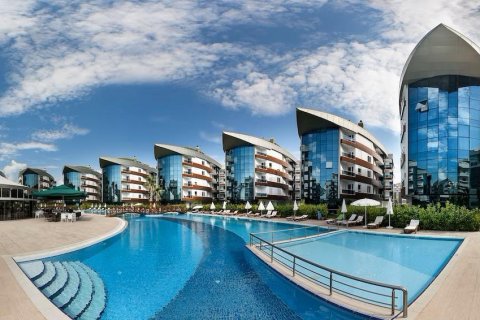
There is a well-established term "migrant" in international law, but in modern life, the words "expats" or "expatriate" are being used more and more often. Migrants are people who move to another country for a specific purpose, often in search of better living conditions and earning opportunities.
The term "expat" is relatively recent and refers to a person who has moved abroad. However, this move is not necessarily permanent. Foreigners often move for work, especially if they are specialists assigned to branches of international companies, but they may also simply seek new impressions and experiences.
It is important to understand that expat is a temporary status. Unlike immigrants who move permanently, expats can return to their home country or change location by moving to another state. In this article, we will answer the questions: Who are expats? What does it take to obtain this status?
Content
Signs of an expat
An expat is a person who is not radically different from other legal migrants. Both expats and migrants:
- Must obtain permission to be in the country, whether it be a work or student visa, a residence permit for investment, a freelancer visa, or other state-specific programs.
- Are bearers of a different culture and mentality, and often do not speak the local language.
- Consciously and voluntarily decide to move to another country.
Many successful professionals accept foreign contracts that allow them to gain experience in an international corporation, reach a global level and exchange skills with colleagues from other countries. Wealthy retirees may be attracted by the calm pace of life and comfortable climate of another country, while entrepreneurs may be attracted by new markets and tax optimization.
Expats usually have savings, good education, and relevant professional experience. As a rule, they are in-demand specialists who speak at least one foreign language. If something goes wrong in the country of residence, they can always return to their home country or find another place to work and live, keeping their usual comfort.
How to become an expat
The first step is to find a legal opportunity to relocate. Some of the most common options include:
- Career: International holding companies often send workers to offices abroad to network and share experience between departments.
- Changing jobs: In-demand specialists may receive offers from different countries.
- Moving to a more comfortable living environment: Wealthy retirees, digital nomads can get a long-term residence permit in many countries if a number of conditions are met.
- Investment: Here, one of the most attractive options remains real estate. This is not only a profitable investment, but also an opportunity to acquire a second home in another country. In some countries, the purchase of real estate allows you to get a long-term residence permit, for example, in the UAE. You can choose programs that allow you to get a passport: for example, citizenship in Turkey is available when investing in housing.
What to consider when planning to move
Having understood that an expat definition is, in simple terms, a person planning to live in another country for a while, let's take look at what you need to consider when moving. A different culture and mentality plays an important role in how foreigners are perceived. The most accessible way to assess the situation is to find your diaspora in the city you have chosen to live in. You should also make sure that it is safe to walk and travel in the new place or use your wallet and smartphone on the streets. Global security can be assessed using the annual Global Peace Index.
The level of infrastructure development is relevant for everyone. It is desirable to find out in advance about the state of medicine: how a foreigner can get help, whether it is easy to find a good doctor and necessary medicines. For families with children it is important to evaluate the education system: availability of education in English or native language, availability of free kindergartens and schools for foreigners, cost of private educational institutions. By considering these factors, you can make an informed choice of a country for relocation.
The difference between expats, immigrants, and emigrants
The difference between expats, immigrants and emigrants lies in their motivation, status, and intentions regarding the move, as well as from which side of the border to consider them.
An emigrant is a person who leaves their home country for one reason or another. The term comes from the French verb "emigrer," which means "to depart" or "to move out."
Immigrants are those who come abroad for the purpose of permanent residence. The immigration process involves obtaining a residence permit and residency status. Immigrants seek to integrate into a new society, find work, get education, and often consider citizenship.
Expats are people who temporarily live and work abroad without intending to stay there permanently. As a rule, they are less interested in the topic of acquiring citizenship—for investment or otherwise—because their residence is temporary.
Specialists of Citizenship-By.Investment are ready to give detailed advice on moving to another country and choosing the most suitable scheme for obtaining a residence permit or citizenship.














